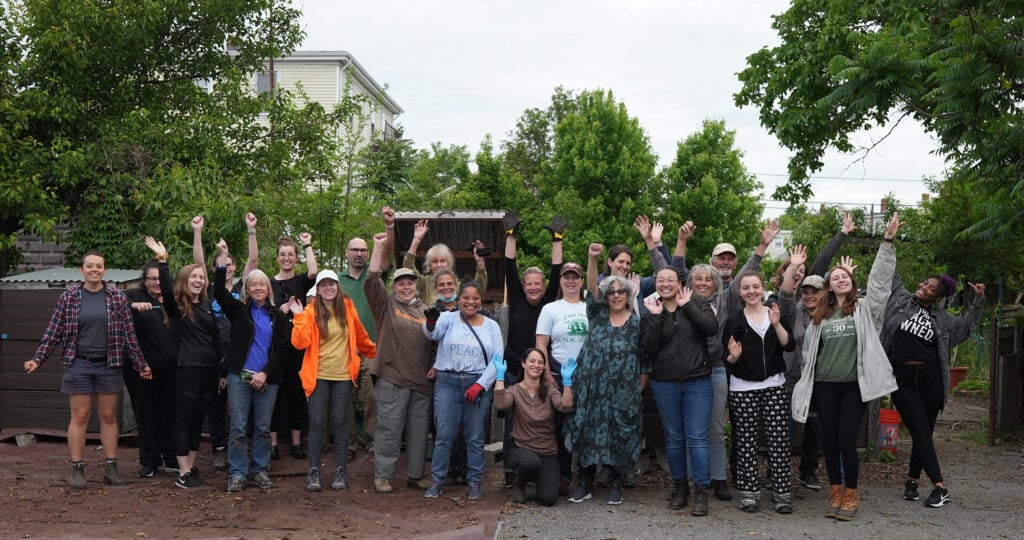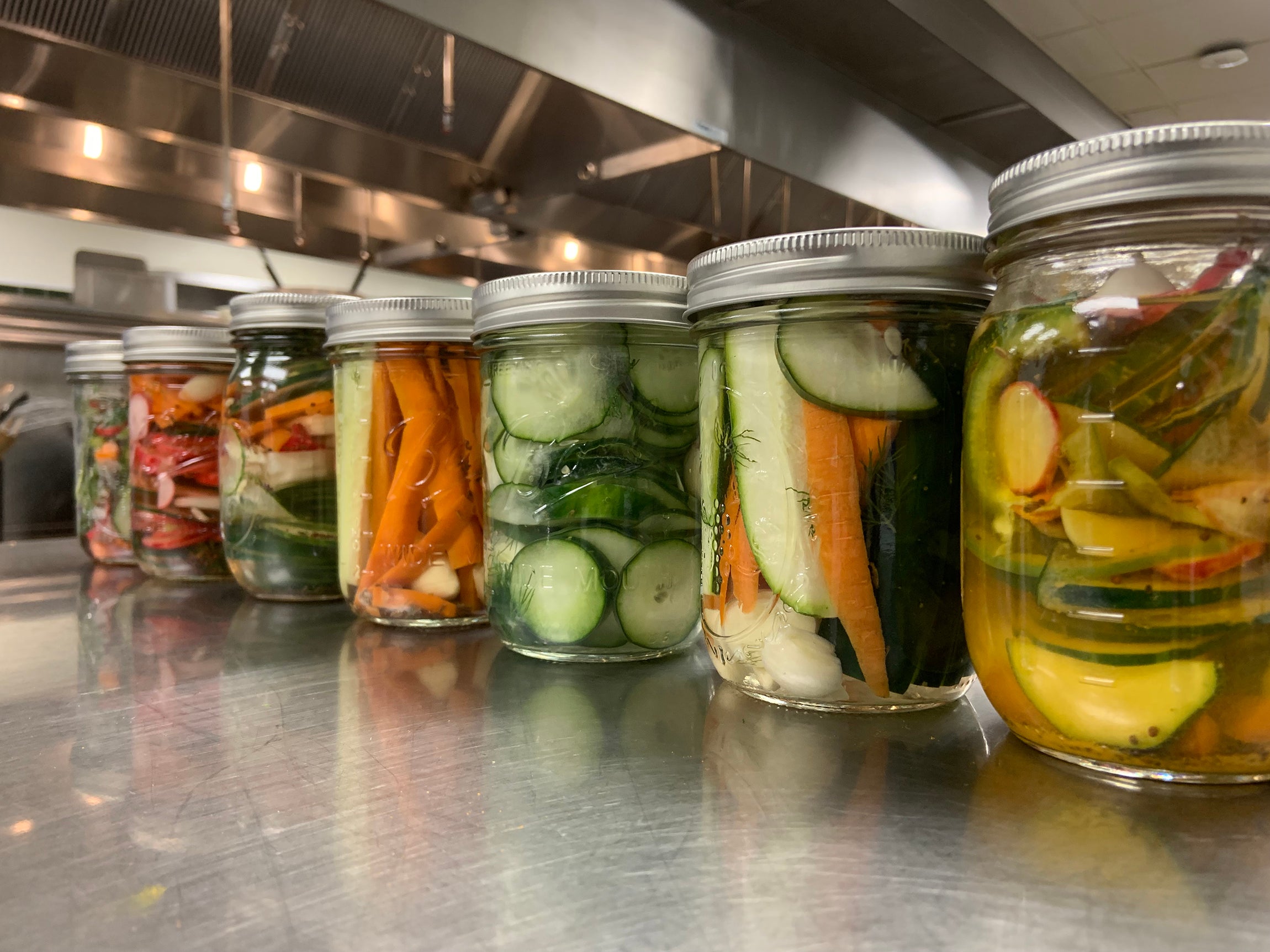KINGSTON, R.I. – June 27, 2023 – Course applications opened this month for Food Recovery for Rhode Island, a course offered by the Cooperative Extension, part of the University of Rhode Island’s College of the Environment and Life Sciences.
The six-week community education course, which opens its next session in September 2023, is the brainchild of Food Recovery for Rhode Island (FRRI), which wondered if there was a way to address food waste and food insecurity simultaneously. Open to all Rhode Islanders, FRRI aims to change the way we shop for, store, prepare and compost food.

One in three households in Rhode Island is food-insecure and simultaneously food waste at the state landfill makes up 35% of all Rhode Island waste. Reasons to tackle food waste and insecurity together can mean other additional benefits such as reducing water use and carbon dioxide emissions.
URI’s Food Recovery for Rhode Island program launched in 2021, initially funded by the Environmental Protection Agency and supported by Senator Jack Reed, as a partnership to reduce food waste in Rhode Island and improve food access for state residents.
In the pilot phase of the program, over 120 people completed the course and volunteered over 1,000 hours to community-based food recovery efforts from Providence to Hopkinton, Rhode Island. The program successfully diverted 190,661 pounds of food from the landfill in its pilot year and saved 13.8 million gallons of water through residential composting.
“If you’re interested in food, gardening, community problem solving, and fun food facts, it’s a six-week life changing course,” said a previous course participant. The course appeals to adults interested in learning and making a difference in their communities, as well as food system professionals looking for networking opportunities.
After the program launched, Cooperative Extension programs from other states inquired about replicating Rhode Island’s program as a model, and several local chefs and food professionals including Alison Mountford, the Founder and CEO of Ends+Stems, a meal planning service that reduces food waste, and Doug Stuchel, Associate Professor at Johnson & Wales University, volunteered their expertise as well. The program continued to grow in popularity and the upcoming session will be the fourth iteration of the course.
This year’s program takes place Sept. 13 through Oct. 26, as a hybrid online course with in-person field experiences.
Participants will gain:
• Skills to make the most of their food (e.g. food preparation, storage, preservation, composting)
• Spend time outdoors through field experiences at farms, community composting operations and kitchens
• Get an opportunity to take action on community-based projects to combat climate change and feed people
• Meet new people with similar interests to network.
The program trains volunteers on food recovery through the six-week course; volunteers also complete a 40-hour internship with a community organization.
Participants can immediately apply what they learn to their own lives and communities says Amanda Missimer, the URI Cooperative Extension faculty member who developed the curriculum: “The course is designed to teach and implement small, immediate personal changes and plan for larger, community based impacts.”
“The program addresses all elements of the food system, from nutrition and what people can do at home to learning about the landfill and what nonprofits are doing to address these issues,” adds Vanessa Venturini, the URI Cooperative Extension staff member leading the program.
According to Venturini’s office, about 100,000 tons of wasted food enters the landfill in Johnston every year, despite data that suggests that one third of Rhode Islanders experience food insecurity annually.
“What’s unique about our approach is that it supports community-driven change,” says Venturini. “The solutions come from within the communities themselves.”
The course requires a commitment of 90 minutes of online learning and a 90-minute field experience each week.
Volunteers will gain skills in canning, pickling, dehydrating, freezing, composting, food preparation and storage, community engagement and more, and get to intern at one of several community partners, such as Hope’s Harvest, Groundwork Rhode Island, Sankofa Rhode Island, or Rescuing Leftover Cuisine.
Those interested in volunteering can view a video about the program and hear from participants in the program.
The deadline to apply for the September class is Aug. 27, with an early acceptance deadline of July 6 for interested applicants. Cost for the course and training materials is $250; financial awards are available.
Apply or learn more at https://web.uri.edu/coopext/foodrecovery or contact Vanessa Venturini at vventurini@uri.edu with any questions. Follow at @foodrecoveryforri.

